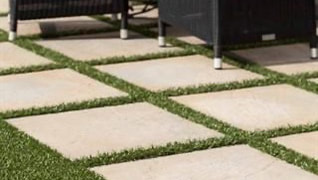|
Labour has launched its Green Economic Recovery Plan. The plan details the shortfalls of the current Government and sets out plans to tackle the job crisis created through the impact of Covid 19 and how the UK can decarbonise the economy. For more information visit: labour.org.uk/page/green-recovery-report/ or access the document below:
0 Comments
It's time that we all realised that our increasing use of fossil fuels to power mechanisation is causing overpopulation, vast inequality and the accelerating rate of extinction of all complex life on our planet.
It should be basic knowledge to everyone, particularly those in power, that all life is totally dependent on the presence of vast quantities of vegetation and fungi. Early forms of them grew by absorbing the greenhouse gas- carbon dioxide, releasing all the non-greenhouse gas- oxygen that we have in our atmosphere now! This process cooled the Earth's atmosphere to a temperature range suitable for more complex forms of life to evolve as it calmed the planet's violent climate. Early forms of crustaceans (shellfish and corals) aided this process of carbon dioxide removal by using it to form almost half of the mass of their protective shells. The accumulated vast amounts of dead vegetation and shells were deposited in huge layers over most of the world as fossil fuels and limestone type rocks (like the Alps). These processed removed an immense amount of carbon dioxide. Vegetation supplies the basis of all life's food and all the oxygen for complex life to move and think. In the past, all life took only what it needed to grow, reproduce and mutate before dying. It's waste products and living parts are totally recycled to form more living things. Early humans lived this way initially, but their brains enabled them to learn how to use and control their environment- making life safer and easier, but in a more competitive way. In the last two centuries, rapidly expanding mechanisation powered by burning fossil fuels has completely reversed all that vegetation and crustaceans have achieved. It blasted millions of tons of hot carbon dioxide back into our atmosphere as it burns and as limestone releases it in the production of iron and cement to create vast human infrastructures. This transformation leaves less room for life giving vegetation to grow, whilst pollution's acidity kills off crustaceans in our seas. This is why all sensible people must stop burning fossil fuels now wherever possible, and quickly revert o renewable energy. We must also work with manual tools where possible to plant and cultivate as much diverse native vegetation as we can to restore our natural food chains and reduce the carbon dioxide concentration to a safer, cooler level. We are Earth's only custodians. Ray Lennard Brown, By CPCAG member Eileen Peck
At the end of a hot summer’s day, when the sun is sinking and the birds are singing their best, what pleasure it is to take a walk around the neighbourhood, perhaps chatting to neighbours and looking at the neat suburban gardens. But wait, what’s going on here? Where once there were neat lawns, flower borders and bushes is emerging a new style of garden – fence to fence paving, plastic grass and barely a spot for any self-respecting bee to find a flower to pollinate! Because there’s been a massive growth in the number of cars on our roads we’re always looking for somewhere to park, and if we aren’t too keen on gardening we’d like to cut down on the work. So, what better solution than paving over the front garden, laying plastic grass and ‘planting’ plastic bushes. The Royal Horticultural Society reports that in the UK a third of gardens are now completely paved, three times as many as a decade ago. But wait, just how does this fit in with the government’s declaration of a ‘climate and environmental emergency’, with the increasing reports of roads flooding and the decline in the bee population? Although government regulations in 2008 removed the need for planning permission for covering a front garden with a hard surface, it has to be permeable to let rain water drain off to prevent flooding, but there is much less concern for the loss of the use of our front gardens by wildlife. Bees, worms and other insects (on whom, we need to remind ourselves, our own food supplies depend!) now need to go further afield to find a suitable place to live or visit and these are increasingly difficult to find. ‘Green’ gardens also play an important role in creating ‘green corridors’ which connect fragments of green space in urban areas. To add to that there is the part played by grass and garden plants in keeping our air fresh, absorbing carbon dioxide and pollutants and (let’s face it!) keeping our planet fit for us to live on. The plant life of planet Earth is what helps to keep the planet temperature stable and the carbon dioxide/oxygen balanced and within the limits which make human existence possible. We destroy and neglect the natural world at our peril! You might also like to think about the effect having a ‘green’ garden has on keeping your home comfortable to live in. A hedge or row of trees can cut down on noise and air pollution. The solution to providing parking space for cars while keeping the garden ‘green’ isn’t difficult: Around the paved car-parking area there can be a flower border, bushes and/or some pots or hanging baskets filled with wildlife-friendly plants. It’s amazing just how many plants can be fitted into a small space beside the front door or in a border along the fence. Plenty of advice if available from the RHS at: www.rhs.org.uk/advice/profile?pid=879 If you’re thinking of paving over the garden to cut down on work then couldn’t the money paid to the paving company go a very long way in paying for a local gardener to keep an eye on things? https://www.rhs.org.uk/garden-inspiration/garden-types/front-gardens If you have a garden near you which looks as if it is a haven for wildlife, which brings a smile to your face and which helps you to feel that the natural world is still flourishing in your neighbourhood you might like to pop a letter of thanks through the letter box. For a sample letter see - https://healthylifeessex.co.uk/2019/07/whats-happening-to-front-gardens/ CPCAG will be having its first informal, public meet-up this coming monday. It will be a chance for members and like-minded Castle Point residents to meet up, get to know each other and share ideas. Just turn up or even better- let us know via the contact page. Everyone is welcome, from the curious who would like to know more about climate change, to the actioneers who are passionate about making the changes and getting things done. The Zac Willsher
170-189 Church Road, Benfleet, Essex, SS7 4PL Mon 20th January 2020 If you are interested in learning more about climate change then read on …
In our December newsletter Emma Powell, Castle Point’s very own UN Accredited Climate Change Teacher, told us about the exciting work she is doing in schools in our area to empower teachers and prepare children for the climate change emergency through education. Emma has completed the course especially aimed at teachers but there is wide range of on-line study material produced by the UN which some of us are already finding very interesting. First there is an introductory course on climate change and then different topics are covered – Sustainable Diet, Gender & the environment, Sustainable Finance, Green Economy, Children and Climate Change and lots more. See - www.unccelearn.org/course/ Now that we are into the New Year we’re thinking that we’d like to start a study group for anyone interested in getting together to discuss the issues. If you’d be interested in joining our community study group please get in touch with through our contact us page |
|
||||||
Proudly powered by Weebly


 RSS Feed
RSS Feed